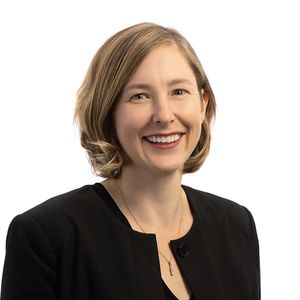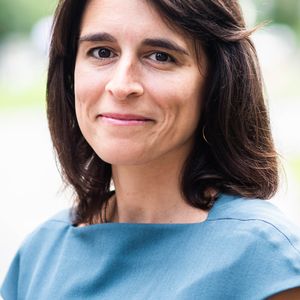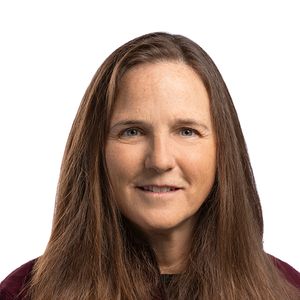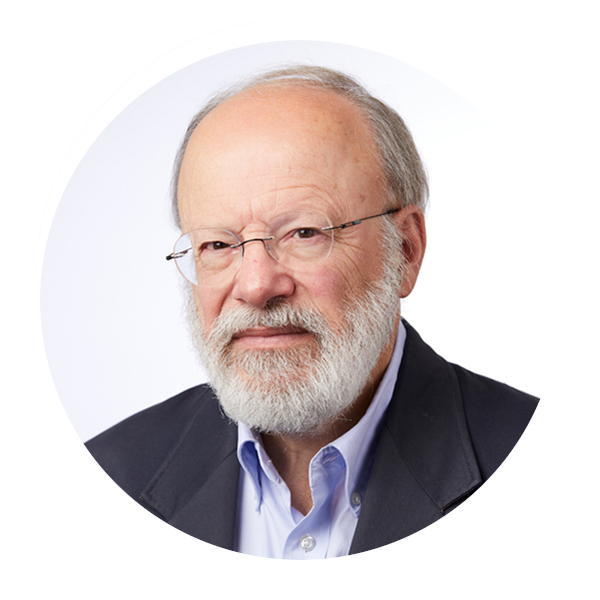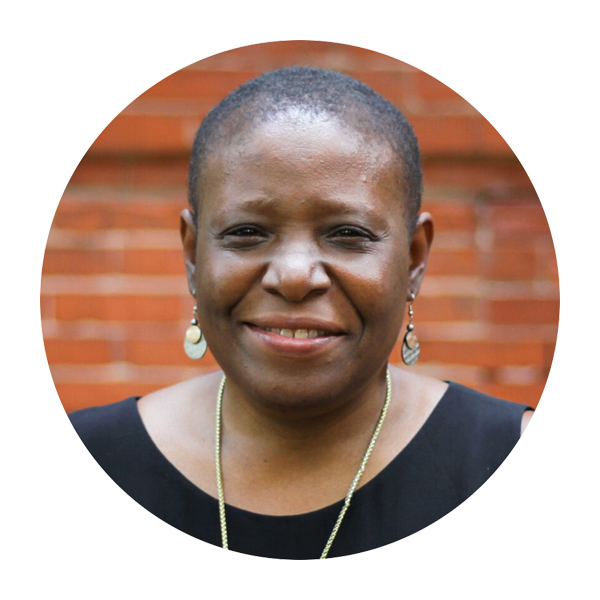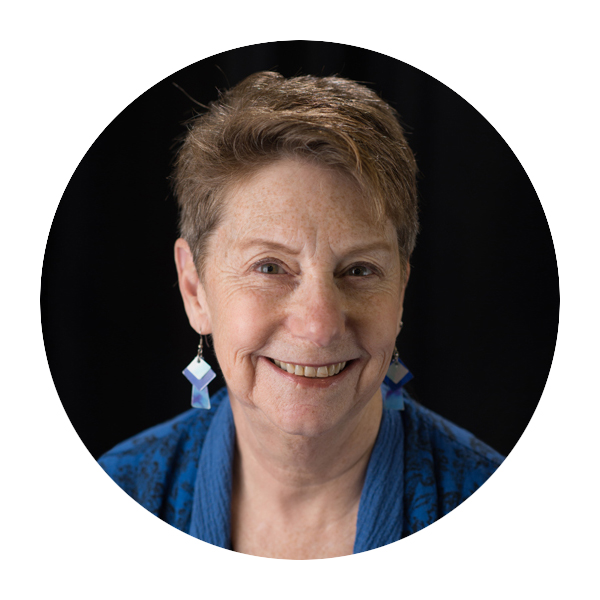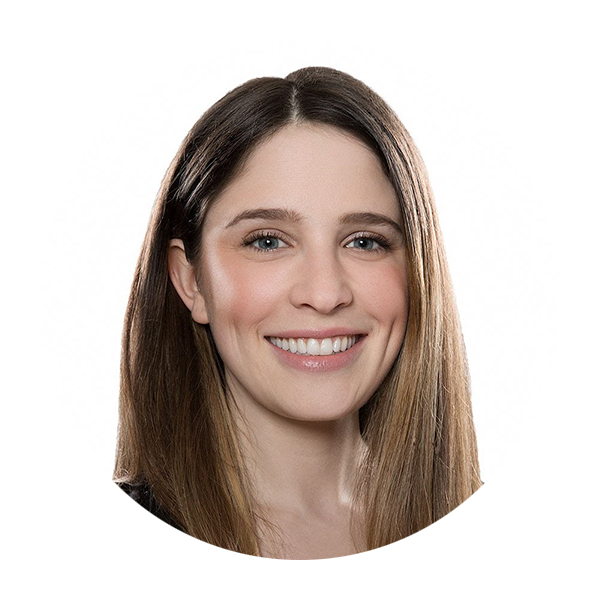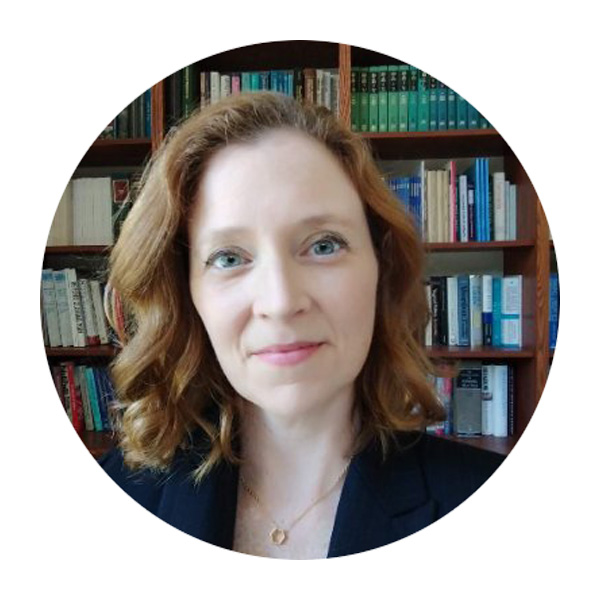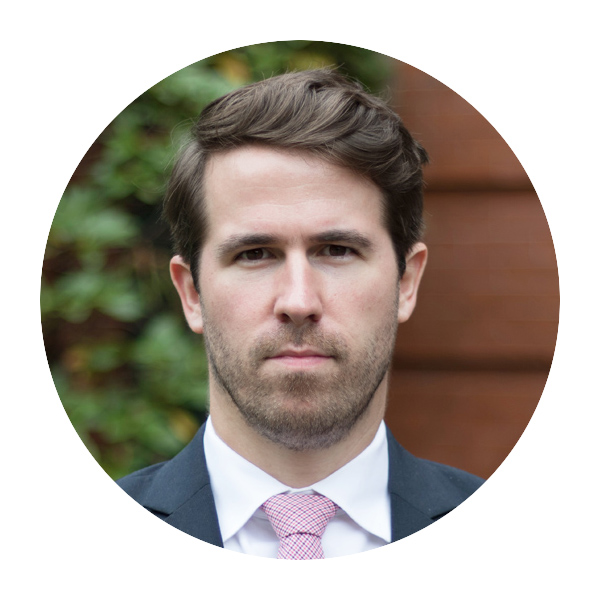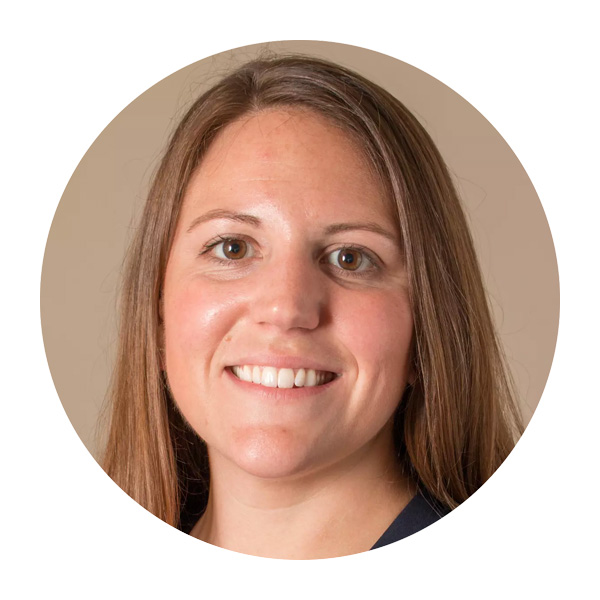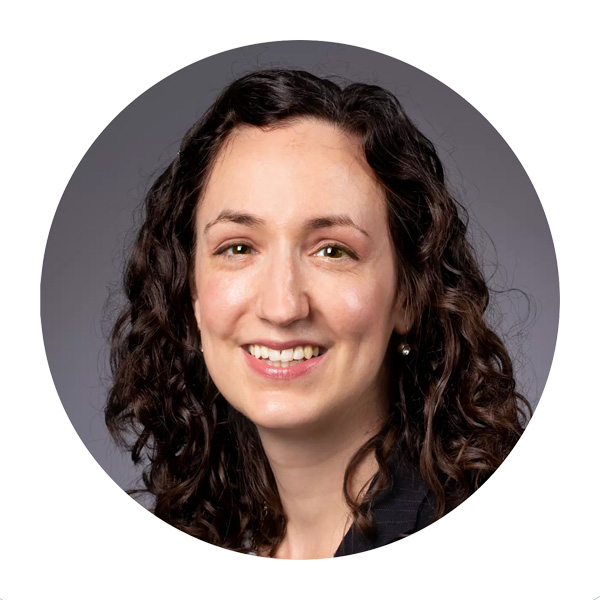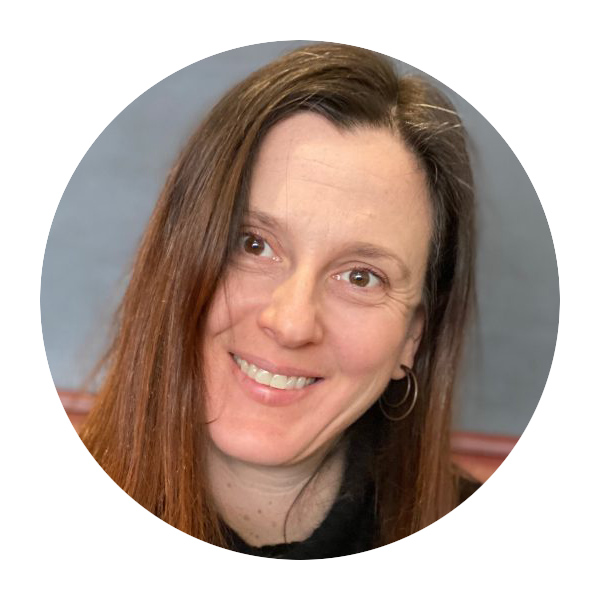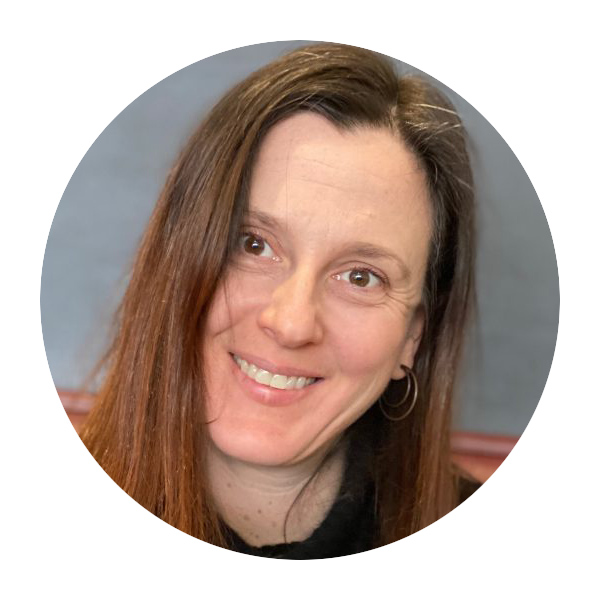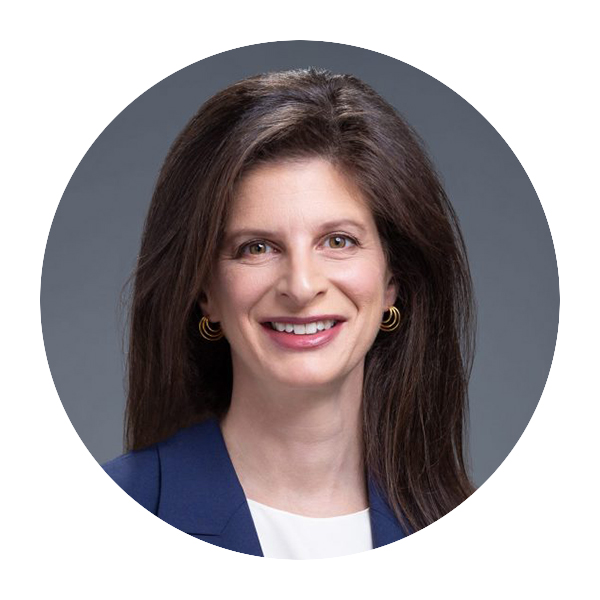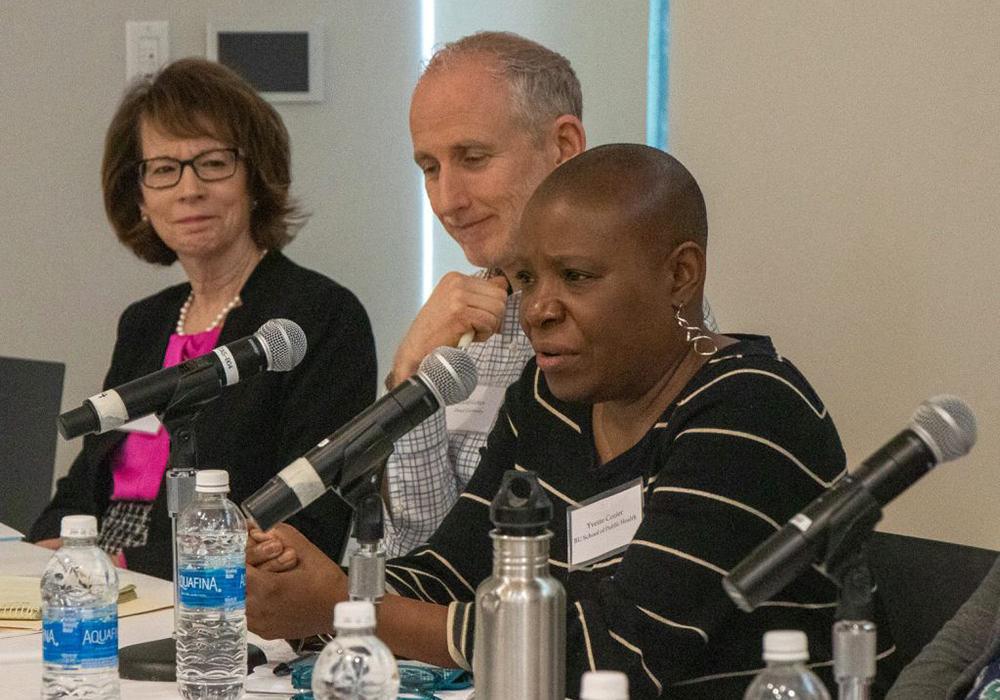Among the first of its kind in the nation, the BU Program on Reproductive Justice (BUPRJ) is a groundbreaking, interdisciplinary program housed in Boston University School of Law and focused on advancing the conversation about reproductive justice. If you are a JD student whose passions lie in this critical area of the law, the BUPRJ will provide you with a unique opportunity to immerse yourself in the coursework, research, and experiential education that will prepare you to address the complex issues and challenges before the legal profession in the wake of Dobbs v. Jackson Women’s Health Organization (2022).
Co-directors of the Program
-

Aziza Ahmed
Professor of Law
-
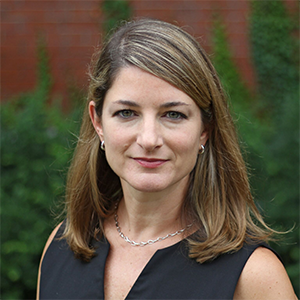
Nicole Huberfeld
Edward R. Utley Professor of Health Law, BU School of Law and BU School of Public Health
-

Linda McClain
Robert Kent Professor of Law
Reproductive Justice and Rights Track
The Reproductive Justice and Rights Track is an offering within the Health Law Concentration. This track will prepare law students to address issues of reproductive rights and justice in practice through advocacy and policy work for nonprofit organizations, state legislatures, federal and state agencies, and law firm practice groups. The approval of a concentration advisor is required. Laura Stephens is the faculty advisor for the Health Law concentration, and Aziza Ahmed, Nicole Huberfeld, and Linda C. McClain serve as faculty advisors for the Reproductive Justice concentration. 19 credits required. Learn about summer funding opportunities for student work in reproductive justice and rights.
Required courses:
Public Health Law (JD 926)
Reproductive Rights Seminar (JD 775)
Gender Equality Law or JD 990 Feminist Jurisprudence (JD 914) (S) (offered alternating years)
Choose remaining credits from the following doctrinal courses and clinics:
Environmental Justice & Civil Rights (JD 722)
Health Care Decisions and Bioethics (JD 727)
Critical Race Theory Colloquium (JD 731) (S)
Disability Law (JD 749) (S)
Gender, Violence, & the Law (JD 798) (S)
Family Law (JD 811) (3 credits) or Family Law (JD 814) (4 credits)
Health Care Finance (JD 867)
Youth and the Law (JD 895) (S)
The Courts and the LGBT+ Movement (JD 911) (S)
Gender Equality Law (JD 914)
Queerness & the Law (JD 917)
Gender, Law and Policy Colloquium (JD 966)
International Human Rights (JD 991) (S)
Experiential courses: (a maximum of 6 credits for any one clinical or experiential course may count toward the required credits)
Compliance Policy Clinic (JD 823)
Health Justice Practicum (JD 893)
Health Law Externship (JD 954)
Immigrants’ Rights & Human Trafficking Clinic (JD 975)
Criminal Trial Practice/Criminal Law Clinic (JD 982, 898, 899)
Semester in Practice: Fieldwork (JD 739) (placement subject to approval)
Semester in Practice: Seminar (JD 740)
Other Law Courses to consider, but cannot be used to satisfy this track:
Taxation and Racial Capitalism (JD 692)
Digital Civil Liberties (JD 779)
Crimmigration (JD 837) (S)
First Amendment (JD 839)
Affordable Housing Law (JD 935) (S)
Hospital Law (JD 913)
Housing Law (JD 961) (S)
Juvenile Delinquency (JD 824) (S)
Restorative Justice: Principles and Practices (JD 827)
Practicum: Community Lawyering [new offering for spring 2024]
School of Public Health Courses
Directly relevant:
Reproductive Health Advocacy: From Rights to Justice ( SPH MC 785) (2 credit, also a 4 credit version – MC815)
Related: (4 credits, except where noted)
Reproductive Epidemiology (SPH EP 759)
Gender, Sexuality, Power, and Inequity in Global Health (SPH GH 735)
Health and Human Rights (SPH LW 740)
Beyond Reproductive Health; International Women’s Health (SPH GH 753) (2cr)
Sexual and Reproductive Health in Disaster Settings SPH GH 766)
Global AIDS Epidemic: Social & Economic Determinants, Impact, & Responses (SPH GH 795)
Safer Sex in the City: From Science to Policy (SPH MC 705)
Women and Health Policy: Gender, Evidence, and Politics (SPH MC 840)
Health of LGBT Populations (SPH SB 807)
Health Law, Bioethics & Human Rights (SPH LW 840) (seminar)
Mental Health Law, Policy and Ethics (SPH LW 854)
Other options in Maternal and Child Health
Also of interest:
BU School of Social Work
Reproductive Justice and Social Work (SSW HB 790)
Reproductive Justice Learning Community
Affiliated Faculty
Latest News
- Reclaiming Abortion as a Moral—and Religious—Decision
Linda McClain pens a review essay.
- Trump’s Executive Order on IVF: Here’s What It Does and Doesn’t Do
Aziza Ahmed is quoted.
- Fried Frank Team Files Amicus Brief with North Dakota Supreme Court Arguing Right to Abortion Care Flows from State Constitutional Right to Self-Defense
Linda McClain co-authors an amicus brief.
- Banning Trans Health Care Puts Young People at Risk of Harm
Aziza Ahmed co-authors an opinion.
- What Does Donald Trump’s Election Mean For…
Linda McClain is quoted.
- While Republicans are downplaying abortion ahead of November, Democrats are leaning in on the issue
Professors Huberfeld and McClain co-author an article.
- Abortion Restrictions Worsen Racial Inequities in Maternal Care
Aziza Ahmed pens an opinion.
- Abortion Rights State Laws Banning Abortion Linked to Increases in Mental Health Issues
Gordon Burtch is interviewed.
Past Events
Reproductive Justice (and Law) in the Current Political Moment and Beyond
April 16, 2025
Professor Aziza Ahmed was a speaker.
A Panel Celebrating the Publication of “The Routledge Companion to Gender and COVID-19”
April 4, 2025
Watch Recording
Birthing and Raising the Next Generation: Holistic Approaches to Advance Racial and Social Equity
April 1, 2025
Speakers reflect on recent advances, persistent challenges, and point to new directions for advancing equity in childrearing and family health in the United States. BU Program on Reproductive Justice affiliate Dr. Lois McCluskey was the moderator.
The Collateral Damage of Dobbs on Women’s Health: Beyond Abortion Care
March 14, 2025
Professor Nicole Huberfeld was a panelist.
International Women’s Day with Our Bodies Ourselves
March 8, 2025
Professor Aziza Ahmed was a speaker.
Comstock Conflict in the New Trump Administration
January 17, 2025
A webinar based on the BU Law Review Online written symposium about Reva Siegel and Mary Ziegler’s Comstockery: How Government Censorship Gave Birth to the Law of Sexual and Reproductive Freedom and May Again Threaten It, 134 Yale Law Journal (forthcoming 2025). Watch Recording.
Second Annual WBA Reproductive Justice Symposium: Advancing Maternal Health & Pregnancy Outcomes for All
November 20, 2024
Professor Aziza Ahmed was the Keynote Speaker.
Program on Reproductive Justice Chicago Luncheon
October 17, 2024
Featured speaker Nicole Huberfeld, Co-Director of BU’s Program on Reproductive Justice, led an engaging conversation on the intersection of reproductive rights and justice in the 2024 election.
Careers in Reproductive Justice Panel + Networking
October 13, 2024
This panel of attorneys working in reproductive justice was hosted by Boston University School of Law and If/When/How.
A Vote for Health: Reproductive Rights
September 25, 2024
This Public Health Conversation was co-hosted by the BU Program on Reproductive Justice, the BU School of Public Health, and Planned Parenthood League of Massachusetts. Watch Recording
“Plan C” Movie Screening and Panel at Coolidge Corner Theatre
April 17, 2024
Private event sponsored by Reproductive Equity Now
February 29, 2024
Aziza Ahmed spoke.
Advancing Pregnant Persons’ Right to Life Symposium
February 8, 2024
Watch Recording
Student Testimonials
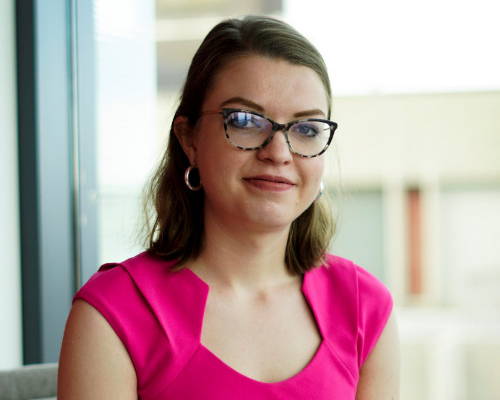
Kayla Walker (’21)
“Supporting asylum seekers’ efforts to fight for their right to medical autonomy while in BU’s Immigrants’ Rights and Human Trafficking Clinic exposed me to the norm of medical neglect and prioritization of profit over basic treatment in immigration detention. Now, as a border attorney for detained asylum seekers, I see daily how the violence of detention and the threat of deportation work together to disempower immigrants from making decisions about their own bodies, and I work with my clients to create a world in which their choice to seek safety is respected.”
Carmen Alvarado-Hernandez
“I was able to win asylum for a client and her young child. This was life changing for her because it afforded her a pathway to citizenship, access to benefits, and hope for her future.”
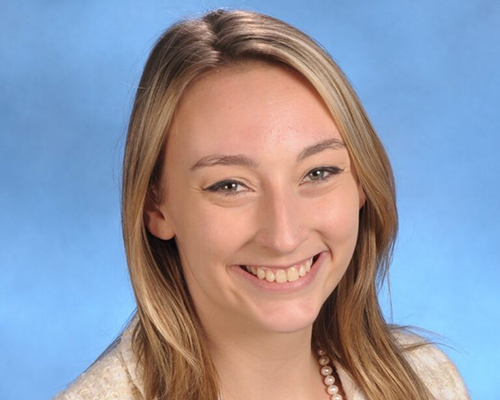
Madeline Comer (’25)
“Working at the Boston Area Rape Crisis Center was a way to come full circle in my own life and work. I’m really grateful for the financial support of my work at BARCC and of BUPRJ’s support for reproductive justice more broadly. This is a really important area to be focusing on right now. A lot of really awful things are happening right now, and it’s on people with resources and power—like BU alumni—to make concrete action happen.”
Deanna Tamborelli (‘20)
“We successfully applied for a T Visa for one of my clients which resulted in her ability to remain in the United States and to work here legally. If she so chose, she could also apply to bring her children to the US to join her. We also put together a webinar and presented at a CLE on Massachusetts’s vacatur law for survivors of trafficking–which has the potential to impact many survivors in the future by giving them an avenue to have victim-related crimes vacated from their criminal records.”
Shannon Gonick
“R

